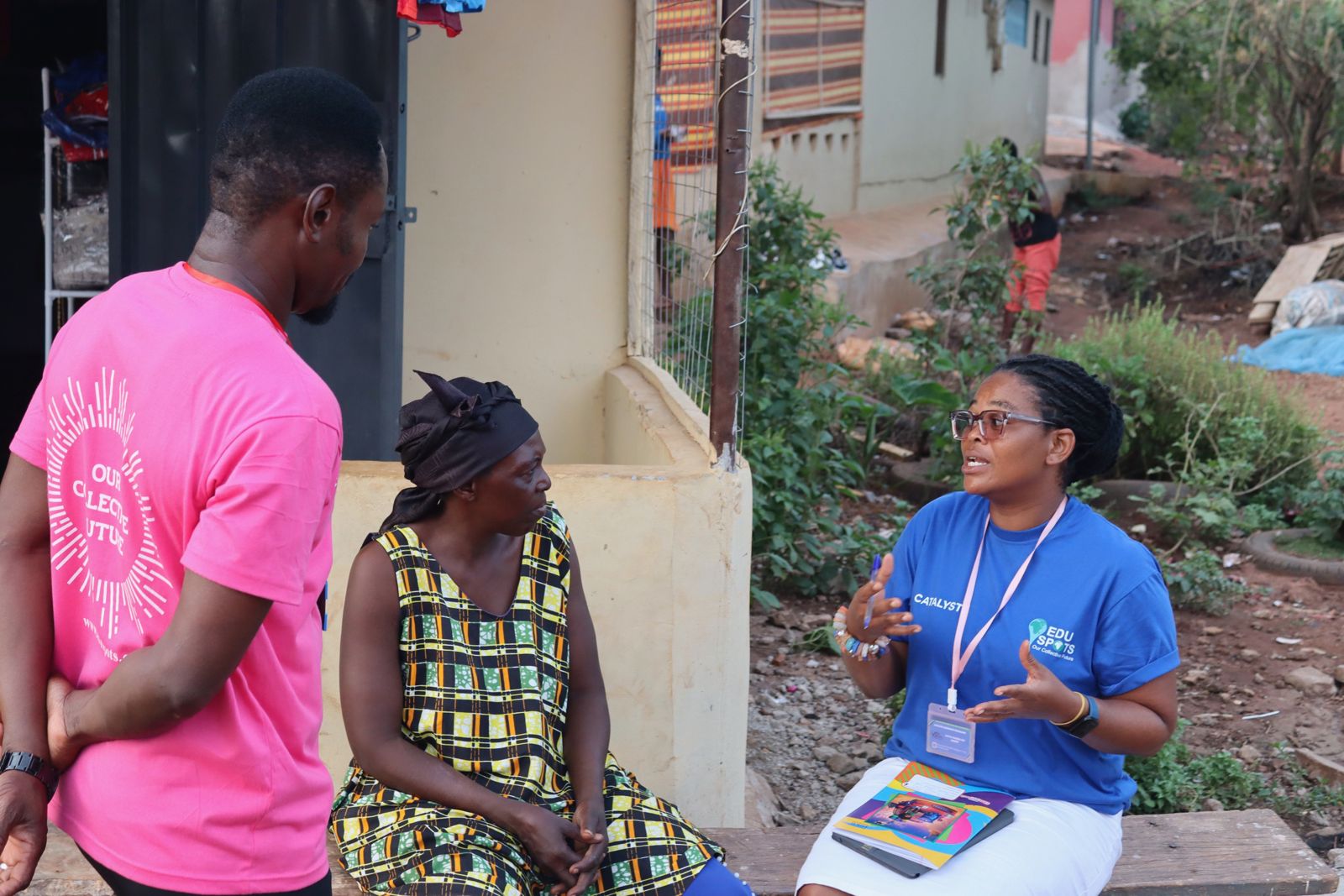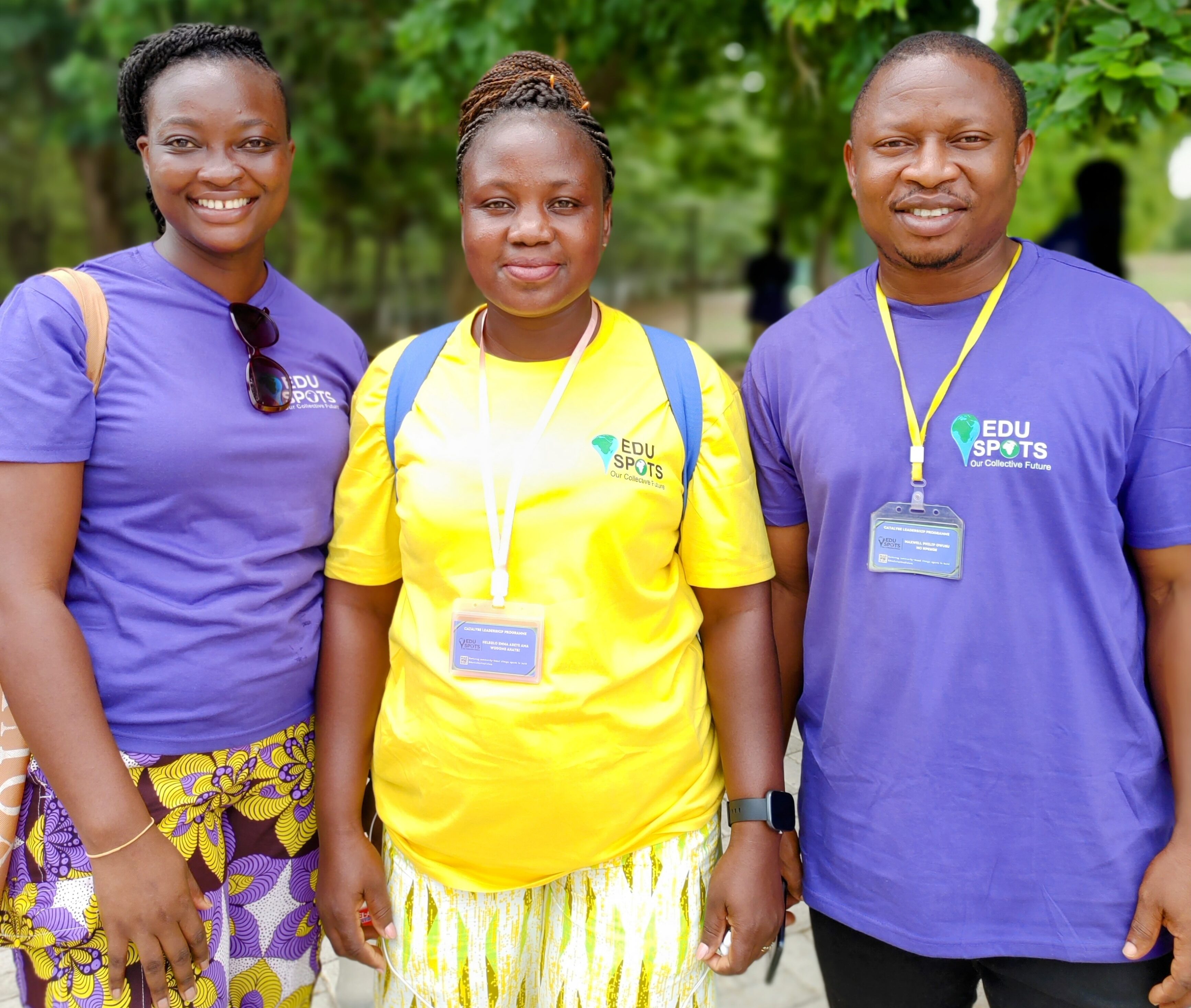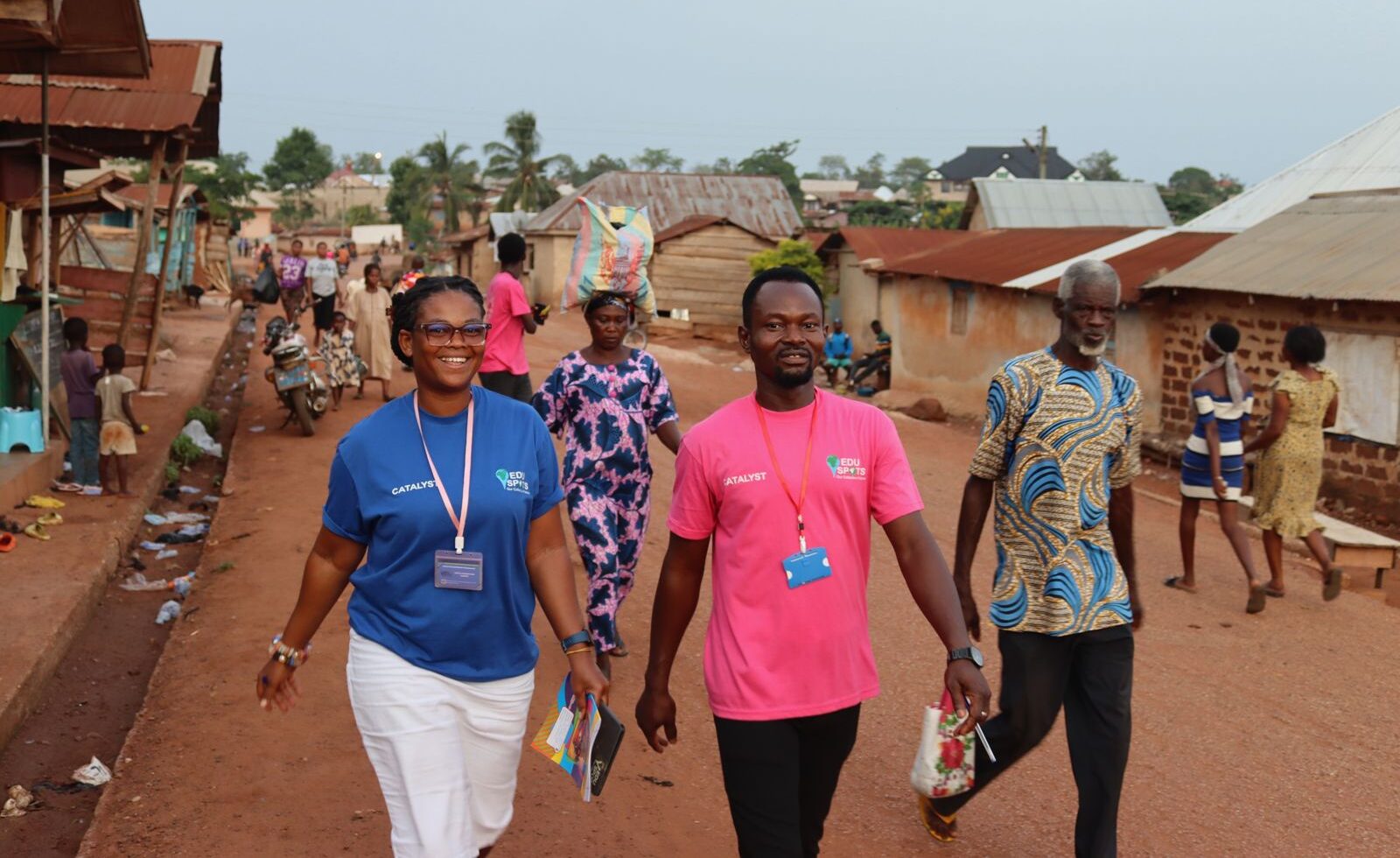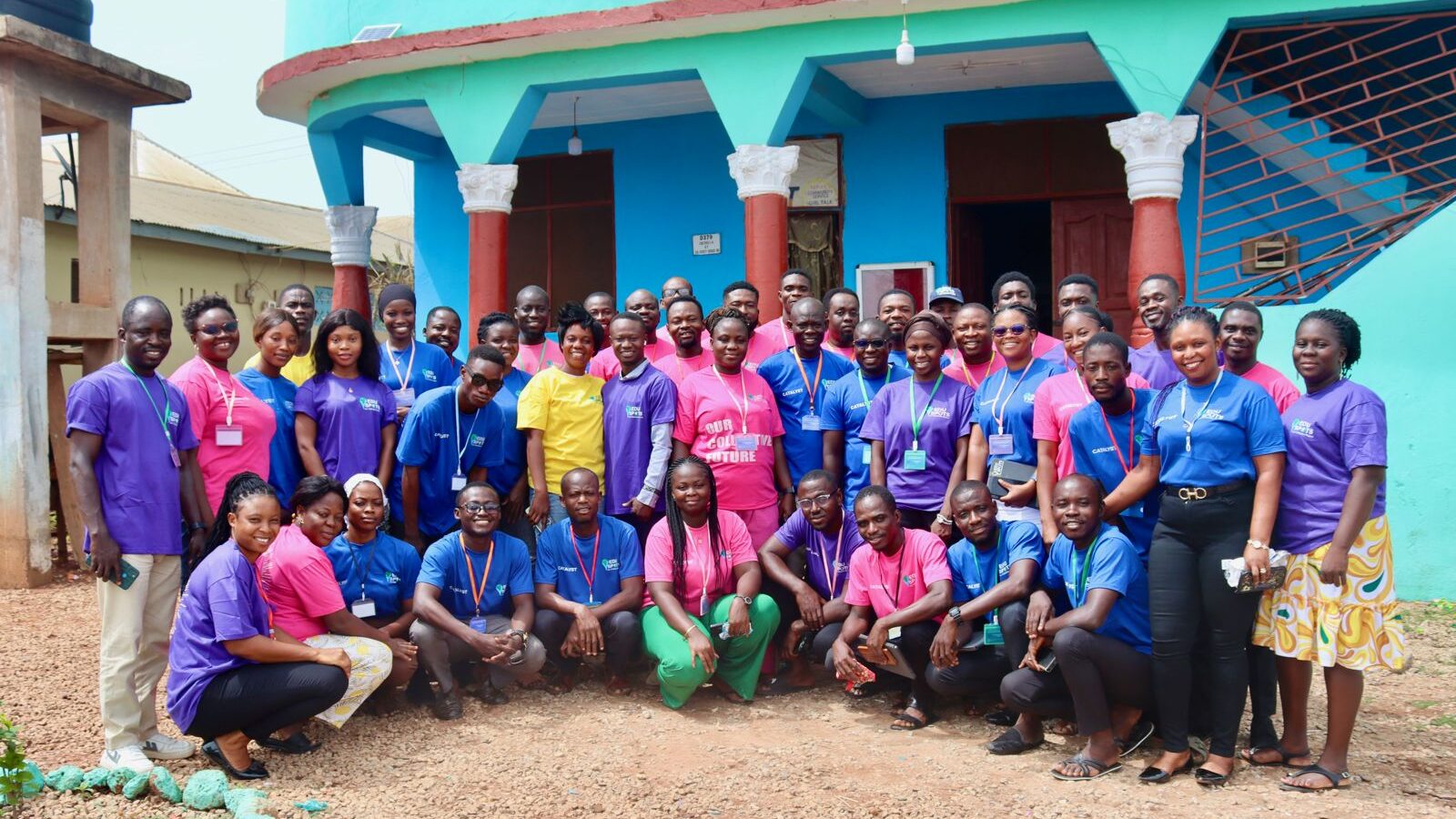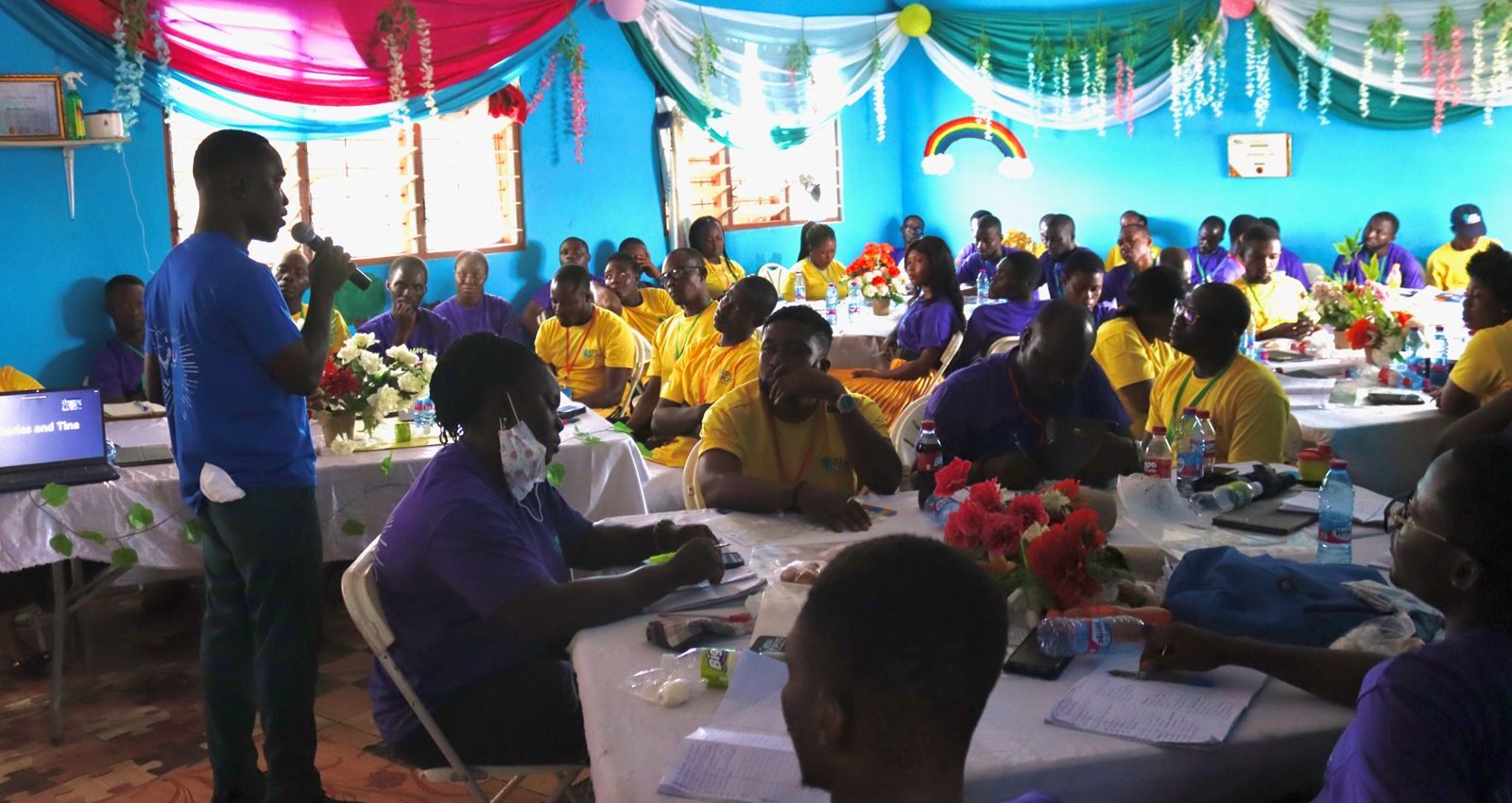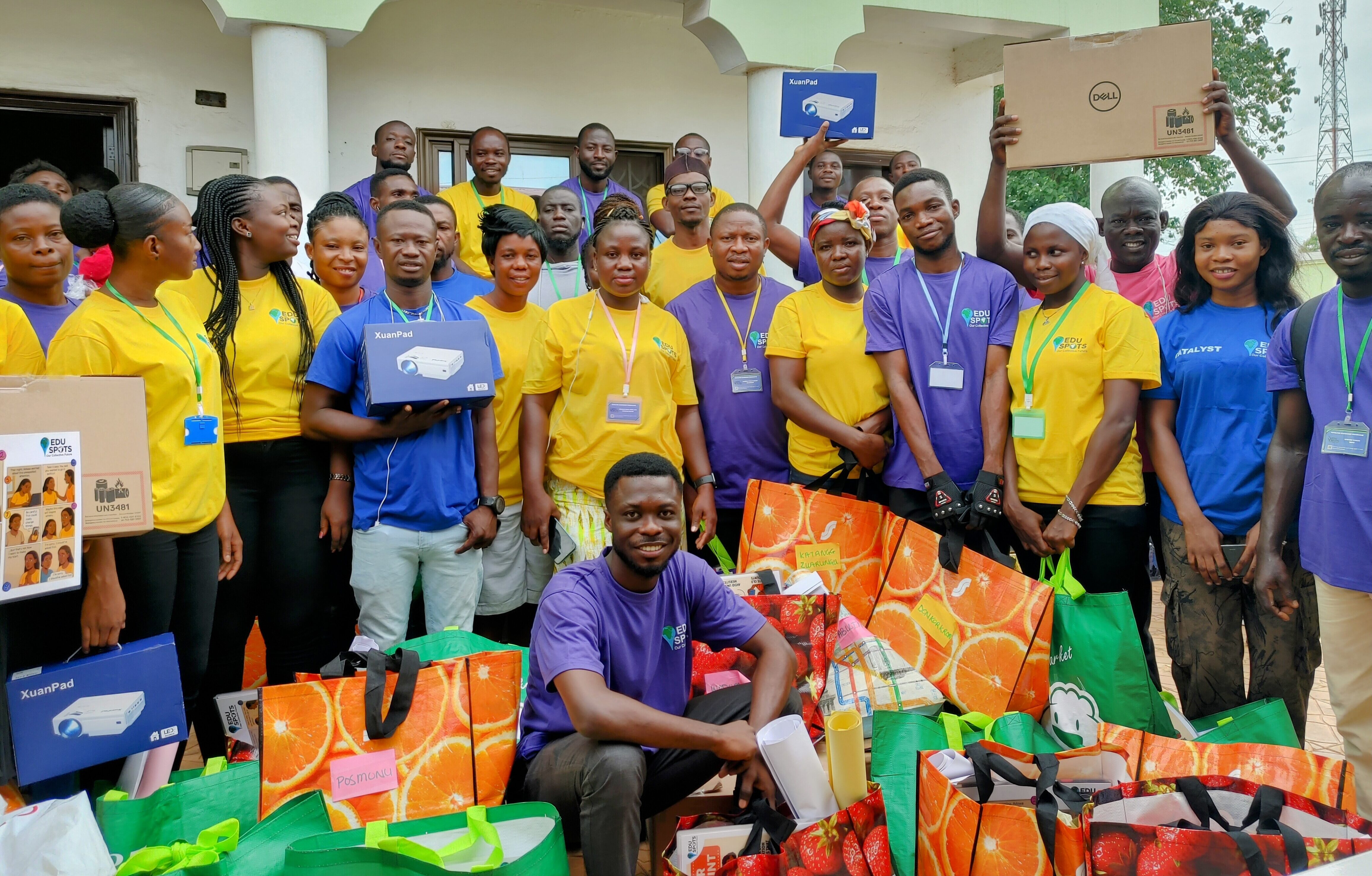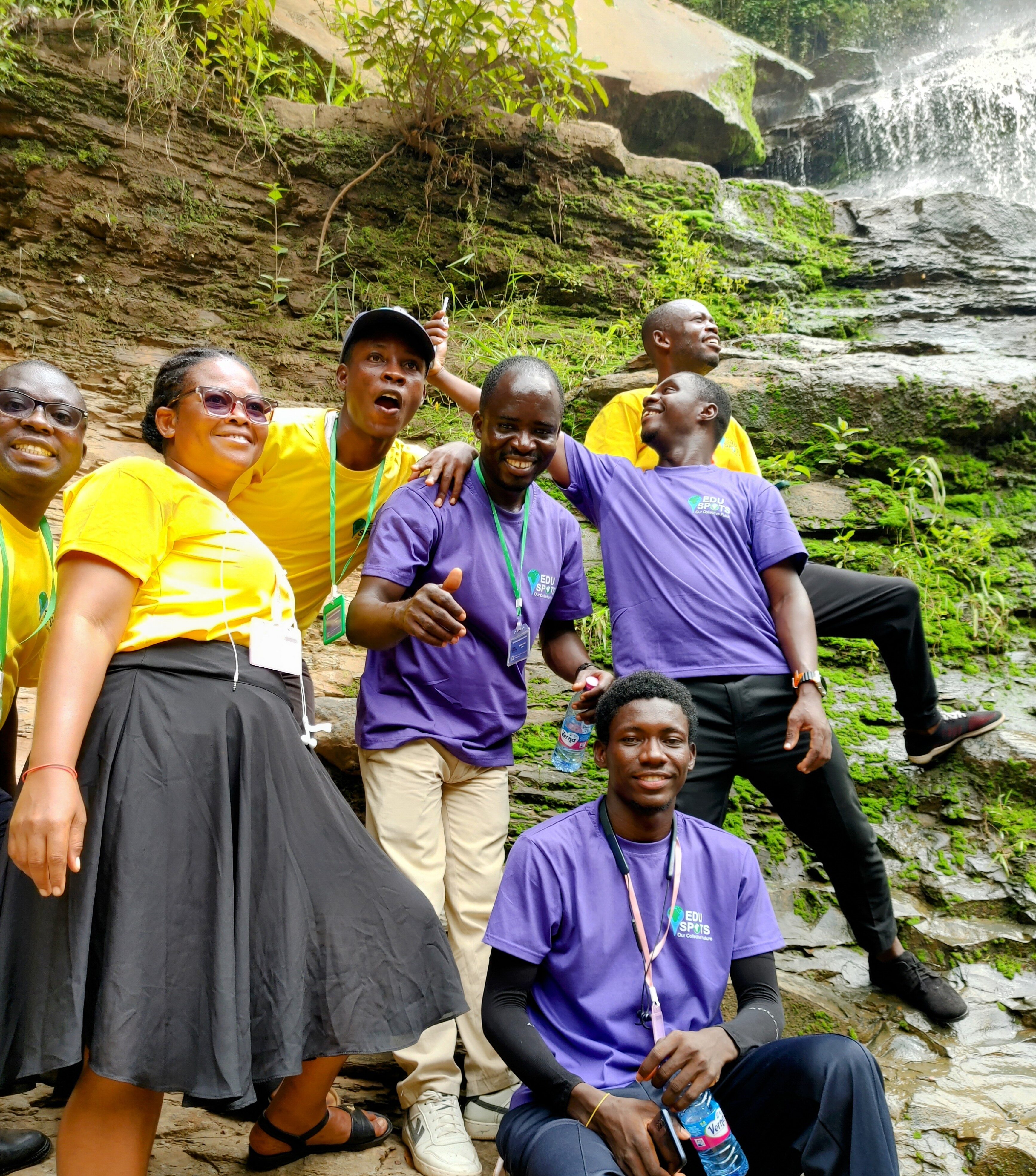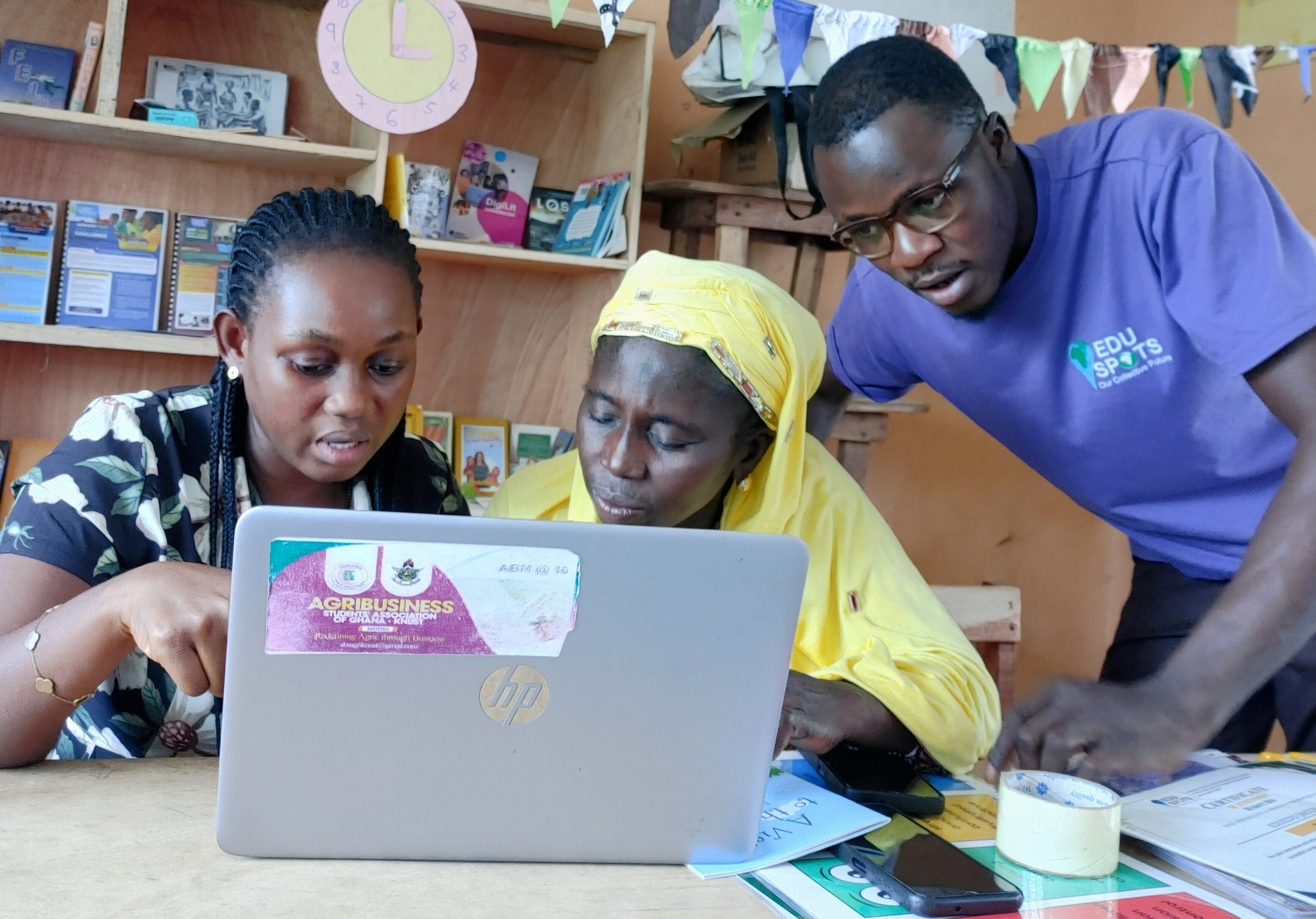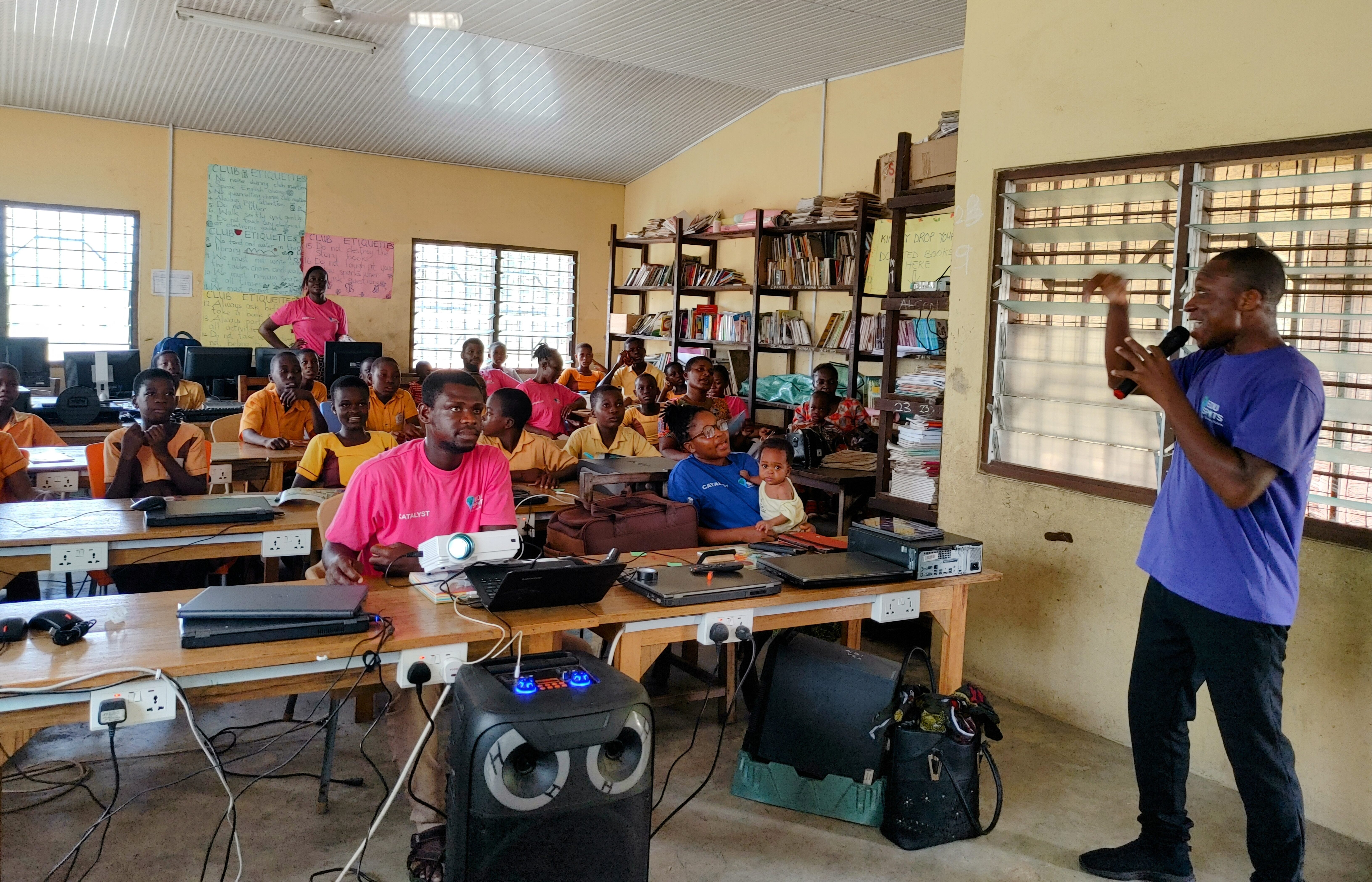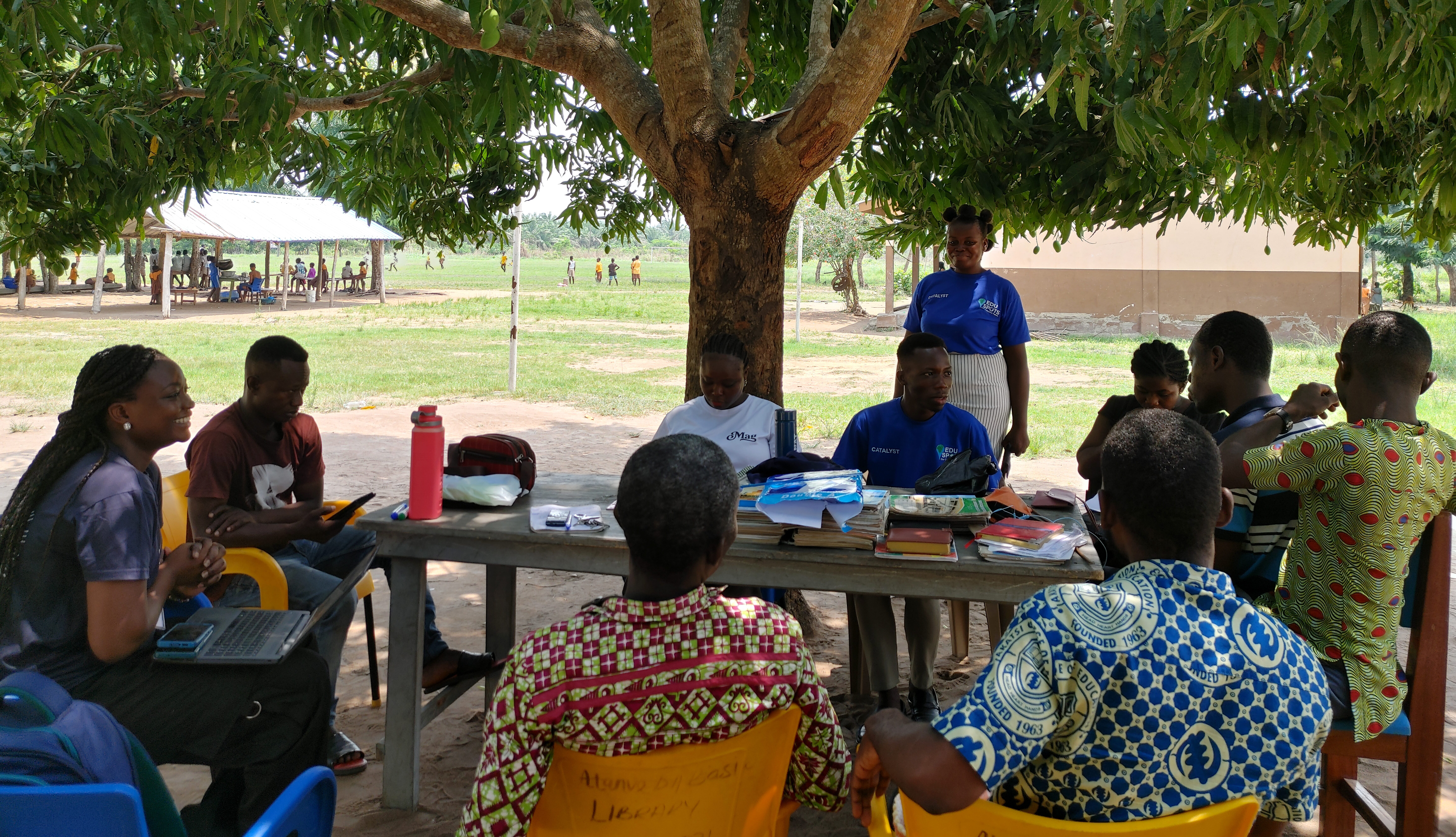“The most important things I learned were how to plan projects, work in teams, engage the community, and become a leader… I have learned how to spot challenges in my community and come up with practical, people-centred solutions. That’s something I’ll carry with me, long after my current project is complete.” (Emma Aseye Ama Heleglo, Catalyse Leadership Programme 2025 Cohort)
The 2025 Catalyse Leadership Programme is a one-year initiative designed to support 50 local changemakers (Catalysts) to improve local education systems in their communities through their leadership of 50 community-owned learning spaces, known as ‘Spots’, working with wider teams in their communities.
The initial phase of the programme started with a call for applications, which received 80 applications from 50 communities across Ghana. Out of these 80 applications, 50 were selected, marking a significant increase from the 2024 cohort (32 Catalysts). This expansion ensured that each of the 50 communities in the EduSpots network has a representative on the programme.
“Dadwen is a community where students indulge in night activities like wake keeping, parties, and other events. To curb this menace, I intend to take up this electrification project to bring the children to the library in the evenings. At the Catalyse Academy, one leadership skill that I learnt is Leadership Styles and how it affects my work…” Love Doe (Headteacher, Dadwen D/A Basic School and Catalyst of Dadwen Spot)
Following the recruitment and selection process, selected Catalysts were invited for a five-day residential training in Akumadan, Ashanti Region, scheduled for Monday, 28th April to Friday, 2nd May 2025. The Academy saw 47 Catalysts attending in-person, with one Catalyst from Joska Spot in Kenya attending virtually via Zoom.
The Leadership Academy, centred on the theme “Building from Community Assets”, engaged Catalysts in sessions that explored areas such as leading safe community learning spaces, engaging communities, building strong teams, developing local fundraising and enterprise ideas, improving communication and advocacy, designing impactful projects, and using digital tools to support learning.
At the end of the Leadership Academy, the Catalysts received resources on behalf of their Spots based on need. The resources distributed included: 4 Dell Inspiron laptops (Ram: 8 GB, Storage: 512 GB) distributed to 4 Spots, 3 projectors distributed to 3 Spots, 1,470 books distributed to 18 Spots, and 168 EduSpots designed educational materials distributed to 47 Spots.
The Leadership Academy wrapped up with a wellness excursion to Kitampo Falls, to further connect, pause, reset, and return to their communities with fresh perspectives.
Between February and April, Impact Ed validated surveys were used to measure change in various skills and attitudes of participants. With a 6.1% increase in leadership skills, 2.4% increase in effective use of digital technologies, and 7.8% increase in environmental action scale. A final endline survey will be taken in December.
The survey also identified further areas of support needed. With a low score in the effective use of digital technologies and the low level of change in the Leadership Academy, an in-person digital skills training program was rolled out in July to address some of the digital skills gaps identified by Spot teams in all 50 communities in the network. The training saw Catalysts lead digital skills and footprint training with support from community resource persons and EduSpots staff.
After the Leadership Academy, Catalysts were asked to work with their Spots team to submit their Catalyse Project Plans and budget in line with any or a combination of the following themes: Spot systems, Community engagement, Team building, Fundraising & enterprise, Communication, and Project design. Each Catalyst is entitled to receive up to GHS 3,000 as a project grant for their Catalyse Project.
Following the project plans submissions, proposals that fulfilled the grant requirements have received approval to proceed with their project. Those that did not fully meet the grant requirements have been asked to review their project plans and resubmit. 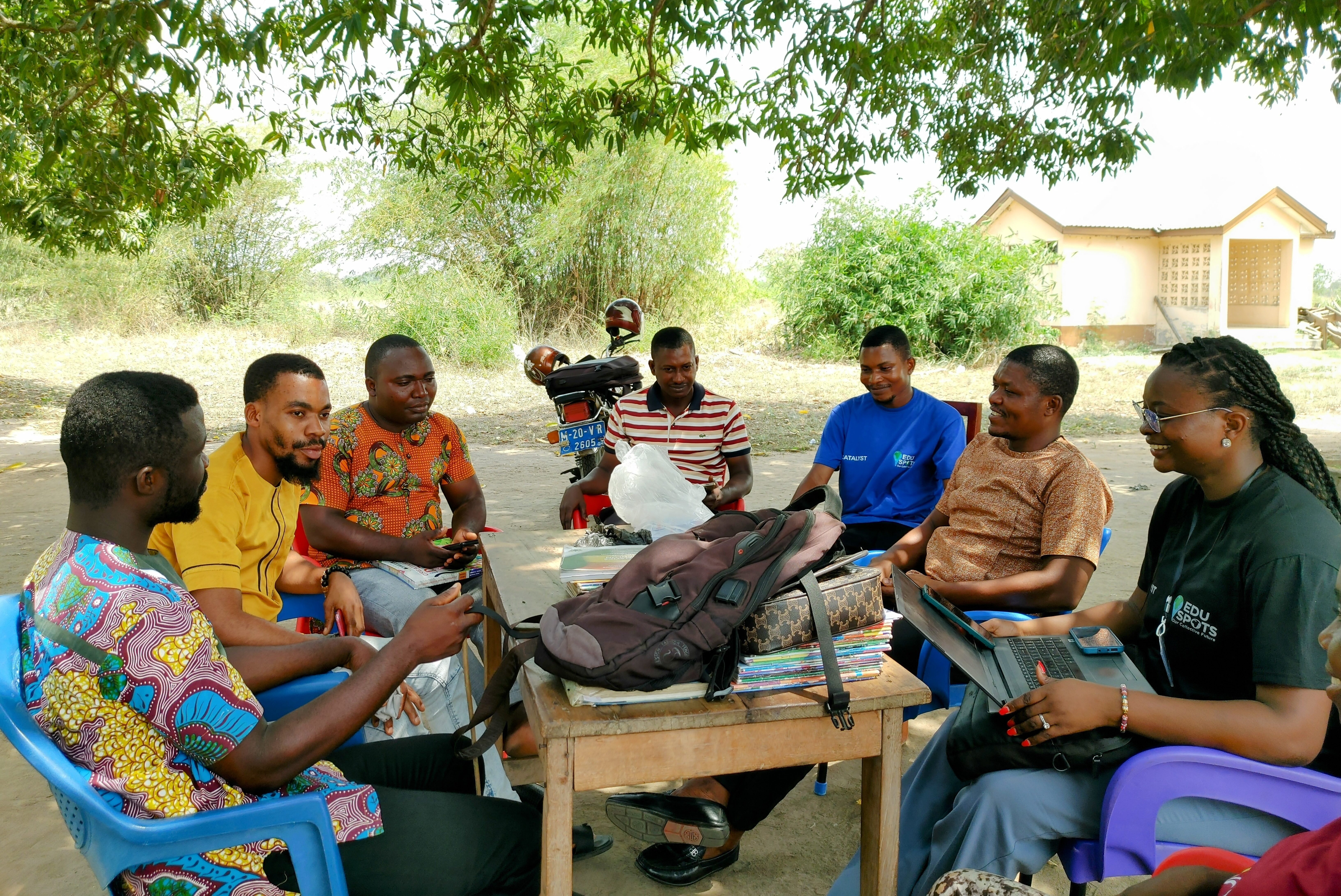
Some of the Catalyse Projects focus on increasing digital literacy among basic school learners. For example, Solomon (Catalyst, Atanve Spot) remarked:
“…This project will target JHS students and selected primary pupils with hands-on sessions on computer use, typing, internet safety, and offline learning resources like Kolibri. The goal is to bridge the digital divide and prepare learners for a tech-driven future.”
Other projects focus on community-wide interventions. For example, Wise (GES Teacher and Catalyst, Abutia Spot) remarked:
“This is an integrated project aimed at restoring a defunct water system by installing a water meter and repairing pipes to provide clean, affordable water to the Abutia community.”
So far, some of the challenges encountered by the Leadership Programme include selected applicants withdrawing their participation from the Leadership Academy due to scheduling conflicts and delays in the submission of Catalyse Project Plans and budgets by some participants.
To address these challenges, the Regional Coordinators (RCs) contacted the affected communities to onboard a replacement, ensuring all communities are represented and also providing one-on-one guidance and deadline extension for communities facing delays in submission of thier project plans, respectively.
The following are some ongoing activities to keep participants connected and engaged throughout the porgramme; a weekly WhatsApp feed engagement on leadership, monthly online Catalyse Workshops, Monthly Spot Lead Challenges, and 1-1 mentoring from RCs.
The next steps of the programme will see Catalysts executing their project upon receipt of funds, continued monitoring from RCs, End of year impact reporting and reflection, and end of year certification and graduation event.
The Catalyse Leadership Programme is fully funded across 2024-2025 by the EA Foundation, a UK-based foundation set up to support community-driven initiatives which work to support disadvantaged communities, specially focused on improving access to education and basic services, relieving poverty and promoting environmental sustainability.

